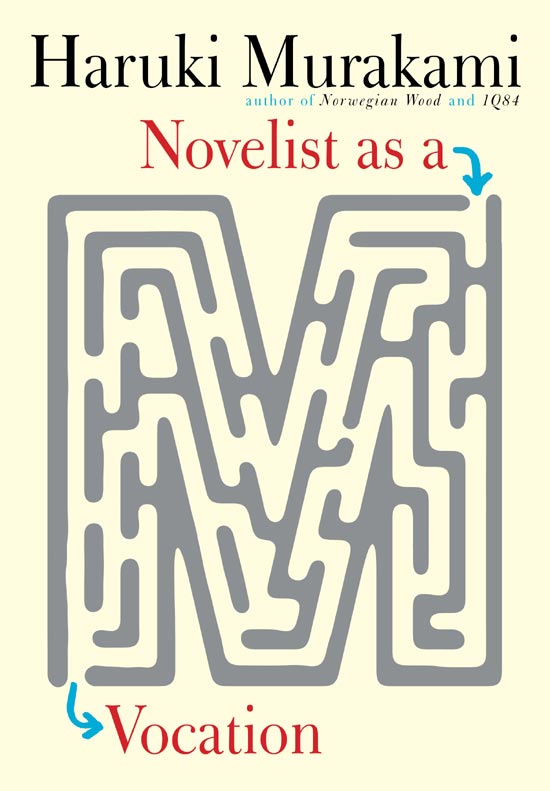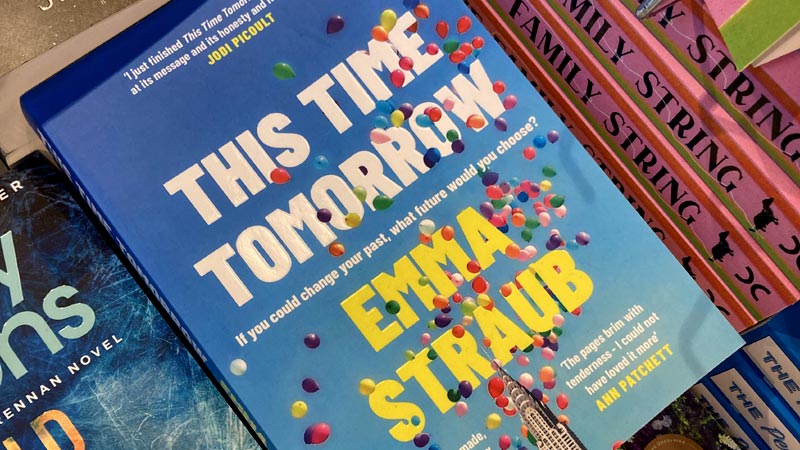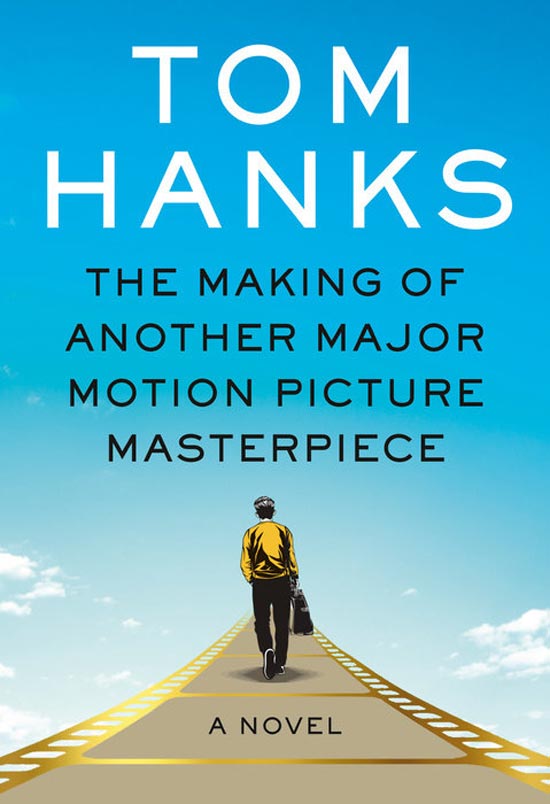Showing all posts about writing
Novelist as a Vocation by Haruki Murakami
1 November 2022

Despite what you might see on bookstagram, the stages of many a literary festival, and many other places, writers are not, and cannot be, friends with each other.
They “are are basically an egoistic breed, proud and highly competitive“, contends Japanese author Haruki Murakami. We’re not here to make friends, we’re here to write books. And if anyone would know, Murakami would. With fourteen novels to his name, no one can say he wouldn’t know.
This is but one nugget of wisdom Murakami shares in his latest title, Novelist as a Vocation, published by Penguin Books, where he writes about being a novelist:
Haruki Murakami’s myriad fans will be delighted by this unique look into the mind of a master storyteller. In this engaging book, the internationally best-selling author and famously reclusive writer shares with readers what he thinks about being a novelist; his thoughts on the role of the novel in our society; his own origins as a writer; and his musings on the sparks of creativity that inspire other writers, artists, and musicians. Readers who have long wondered where the mysterious novelist gets his ideas and what inspires his strangely surreal worlds will be fascinated by this highly personal look at the craft of writing.
RELATED CONTENT
books, Haruki Murakami, writing
Bramble a literary journal for and by disabled creatives
31 October 2022
Bramble is a newly launched quarterly literary journal for, and by, disabled creatives. Founded by Spencer Barberis, and Scout Lee Robinson, past University of Wollongong arts students, Bramble only publishes creative work by disabled writers and artists based in Australia.
RELATED CONTENT
Australian literature, writing
Australian author Bri Lee on earning income from Substack
24 October 2022
On the subject of Substack, Sydney based Australian writer Bri Lee is another author who has turned to Substack. Asking subscribers for money can be a thorny matter, especially as readers have no compulsion to pay: Substack remains free for anyone to access.
But it comes down to the individual reader. They like a writer’s work, and wish to support them. As simple as that. No one is being forced to do anything.
People who do pay will often be paying to ‘support you and your work’ rather than necessarily paying because they perceive the value of what they get in their inbox is equal to the dollar figure you charge. When I launched the paid section in January 2021 I explicitly told people that I wanted to keep the vast majority of the content freely available, and that anyone who did pay was essentially subsidising the access of the non-paying subscribers.
RELATED CONTENT
Authors with profile can earn money publishing on Substack
24 October 2022
British author Tim Lott writes about starting a Substack page, and how the publishing platform can help writers generate income from their work. In Lott’s case it’s so far, so good:
What do my subscribers get in return for signing up? Anything I want to give them. I have total freedom. There are no editors or advertisers telling me what to do. Independence isn’t without its downsides. You have to learn to sell yourself, you have to understand how online media works and you have to be self-disciplined and dedicated. No editors, no agents, no marketing department. You’re on your own. But we novelists know how to be on our own. Now we have the chance to be multi-media publishers as well.
Profile is key here. Anyone with sufficient followers on the platform of their choosing can make money. While there are plenty of people doing well on Instagram or TikTok, they are what I call visual mediums. But they’re not the best for writing, especially long form writing, as they do not function so well as blogging platforms. Substack then may be the solution writers are looking for.
RELATED CONTENT
Dates announced for the 2023 Melbourne Writers Festival
22 October 2022
The 2023 Melbourne Writers Festival (MWF) will take place from Thursday 4 May 2022 until Sunday 7 May. Mark it on your calender. The 2023 event will be held a few months earlier than the 2022 which ran during September.
Update: the decision by MWF organisers to move the event to early May 2023 has upset the convenors of a number of other literary events taking place at, or around, the same time. Most noteably organisers of the nearby Bendigo Writers Festival are particularly concerned, as their event takes place at exactly the same time.
It seems to me the MWF move could have been better thought out. To say the least.
RELATED CONTENT
events, literature, Melbourne, writing
Shehan Karunatilaka wins 2022 Booker Prize with The Seven Moons of Maali Almeid
18 October 2022
After much speculation as who would win the 2022 Booker Prize, and whether there was even any point in speculating in the first place, Sri Lankan author Shehan Karunatilaka has been named winner of the 2022 Booker Prize, for The Seven Moons of Maali Almeid.
Of the winning title, the Booker judges said:
Any one of the six shortlisted books would have been a worthy winner. What the judges particularly admired and enjoyed in The Seven Moons of Maali Almeida was the ambition of its scope, and the hilarious audacity of its narrative techniques. This is a metaphysical thriller, an afterlife noir that dissolves the boundaries not just of different genres, but of life and death, body and spirit, east and west. It is an entirely serious philosophical romp that takes the reader to ‘the world’s dark heart’ — the murderous horrors of civil war Sri Lanka. And once there, the reader also discovers the tenderness and beauty, the love and loyalty, and the pursuit of an ideal that justify every human life.
RELATED CONTENT
Booker Prize, literary awards, literature, Shehan Karunatilaka, writing
Love Your Bookshop Day 2022
8 October 2022

Today is Love Your Bookshop day.
Love Your Bookshop Day 2022 is an annual celebration of everything local bookshops do from fostering expert staff and curating fabulous ranges to creating events programs to celebrate authors, readers, and the books they cherish.
Bricks and mortar bookshops may not be so abundant anymore, but they are an integral part of the writing and publishing industry. In addition to being a source of work for their staff, and a haven for book lovers, bookshops are also vital in helping new authors develop some profile.
RELATED CONTENT
books, literature, novels, writing
Useful resources for creatives working in day jobs
4 October 2022
A collection of useful resources for people juggling day jobs or other work with creative endeavours, put together by Canadian art magazine booooooom.
A couple of standouts include balancing full-time work with your creative side hustle, and advice on turning down ridiculous rates for your work, by Jano le Roux.
RELATED CONTENT
Tom Hanks debut novel fanfare the envy of new unknown authors
1 October 2022

American actor Tom Hanks has recently finished writing his debut novel The Making of Another Major Motion Picture Masterpiece. Unsurprisingly the story is film related. And why not, writing about topics you’re familiar with is a great way to launch your literary career, is it not?
The story centers around the opening of a movie that is a “colossal, star-studded, multimillion-dollar superhero action film” and involves a timeline from the 1940s to the present day. According to the publisher, “Part One of this story takes place in 1947. A troubled soldier, returning from the war, meets his talented five-year-old nephew, leaves an indelible impression, and then disappears for twenty-three years.”
Seems to me like the novel blends a bit of Saving Private Ryan (for the soldier) with some Cloud Atlas (for the time travel), both being movies Hanks starred in.
Undoubtedly his debut novel will do well. Even if it turns out not to be all that good. After all, with the profile Hanks enjoys, what could possibly go wrong, at least in terms of sales? And think about all those A-List reviews the title will garner, giving sales another nudge. This is fanfare other, likely unknown, aspiring authors, would give their right arms to bask in.
But when it comes to profile, either you have it, or you don’t. A stack of debutant authors have had nothing like the prominence Hanks has, but have gone on to be successful writers. But unknown authors looking for some profile, be it by hook or crook, could ironically take a leaf from Hank’s role as Dermot Hoggins, in the aforementioned Cloud Atlas.
Here Hanks portrays the resentful writer of a book called Knuckle Sandwich, which was the subject of a poor review, written by a critic named Felix Finch. So bitter is Hoggins (beware spoilers follow) he throws Finch over the side of a tall building, at a literary event. Finch is killed instantly when he hits the ground.
Sales of Knuckle Sandwich subsequently surge, but by this stage Hoggins is behind bars. In another cruel twist of fate, Hoggins had signed over all royalties from the novel to his publisher, so in the end doesn’t see a penny. Perhaps he hoped to profit from the sales of a follow up title he wrote while incarcerated.
For the rest of us though, I suggest slow and steady, with no one getting hurt, wins the race when it comes to making it as an unknown author.
RELATED CONTENT
books, novels, Tom Hanks, writing
Only in 2114 can books in the Future library be read
30 September 2022
Since 2014, The Future Library, located in the Deichman Library in Oslo, Norway, has been going about assembling a collection of one hundred manuscripts, at the rate of one work per year. When the library reaches capacity, in 2114, the collection will be made available to one thousand people who have purchased certificates allowing them, or a descendent, access to the writings.
The ‘Silent Room’ where the manuscripts are to be kept is built using wood from the original trees felled to make way for the trees planted for the project. Katie Paterson has been working with the architectural team to design this part of the new public library. The collected works will be on display but the manuscripts will not be available for reading.
The library, which is the brainchild of Scottish visual artist Katie Paterson, has so far invited prominent authors, including Margaret Atwood, Han Kang, and Ocean Vuong, to submit manuscripts. I like the idea, but I’m not sure about having to wait almost one hundred years to read what’s in the collection, even if I knew I’d still be around by then.
RELATED CONTENT
